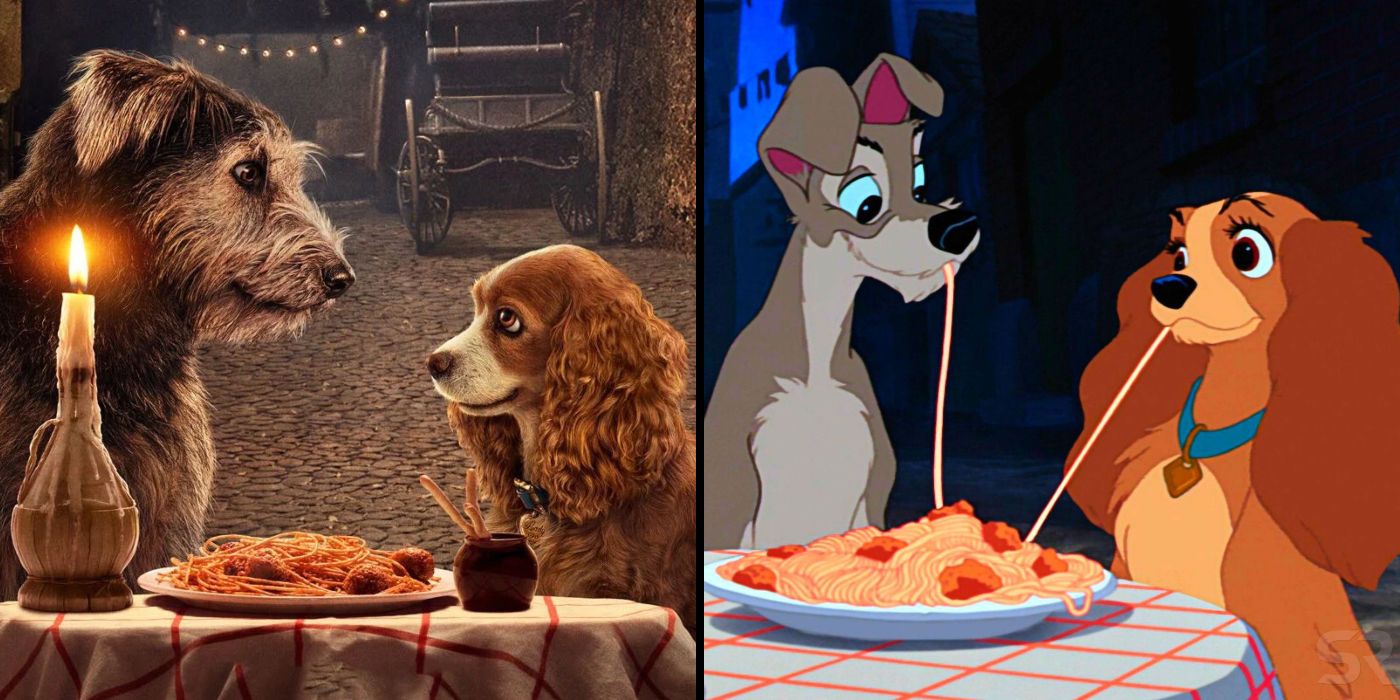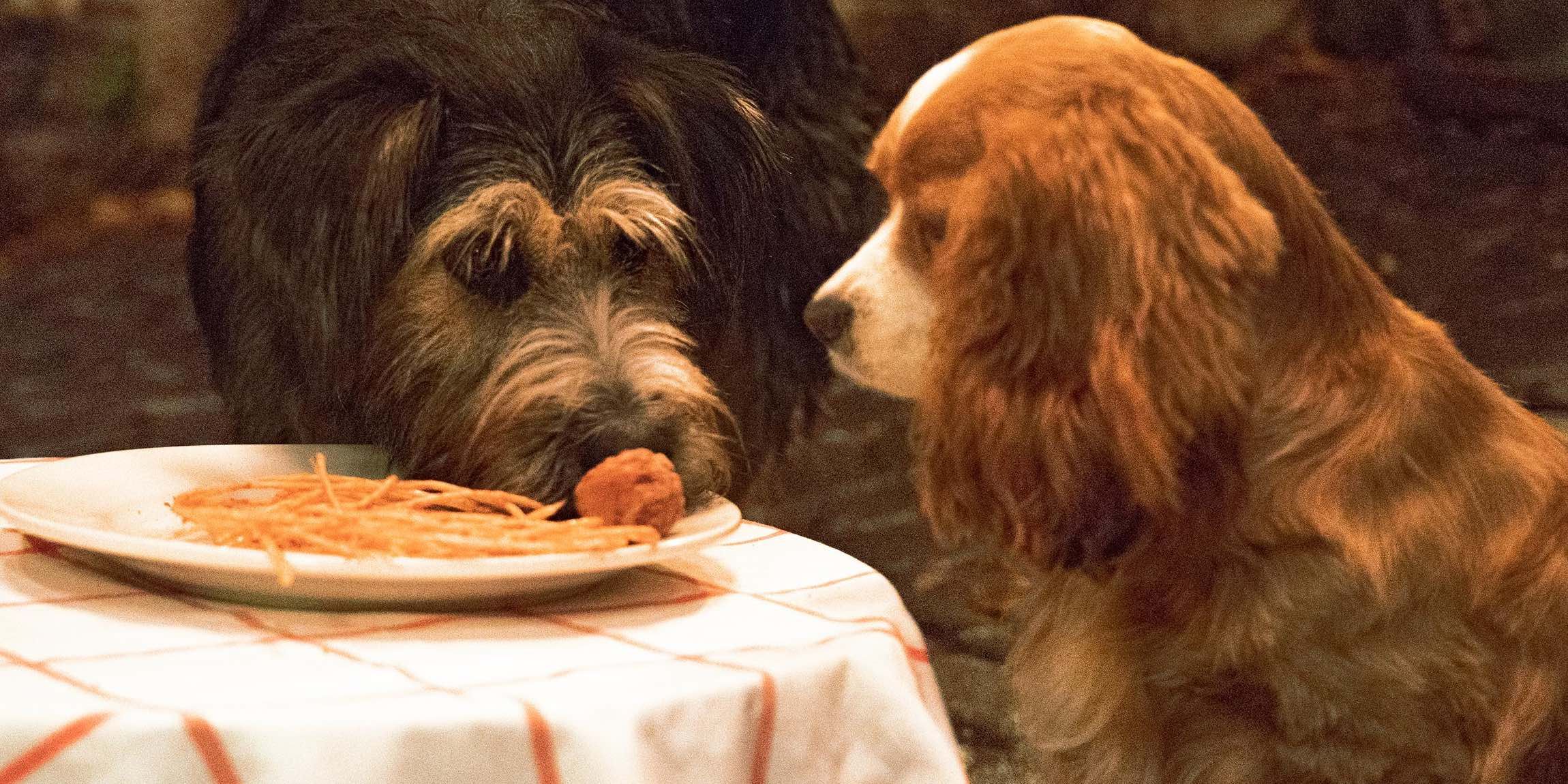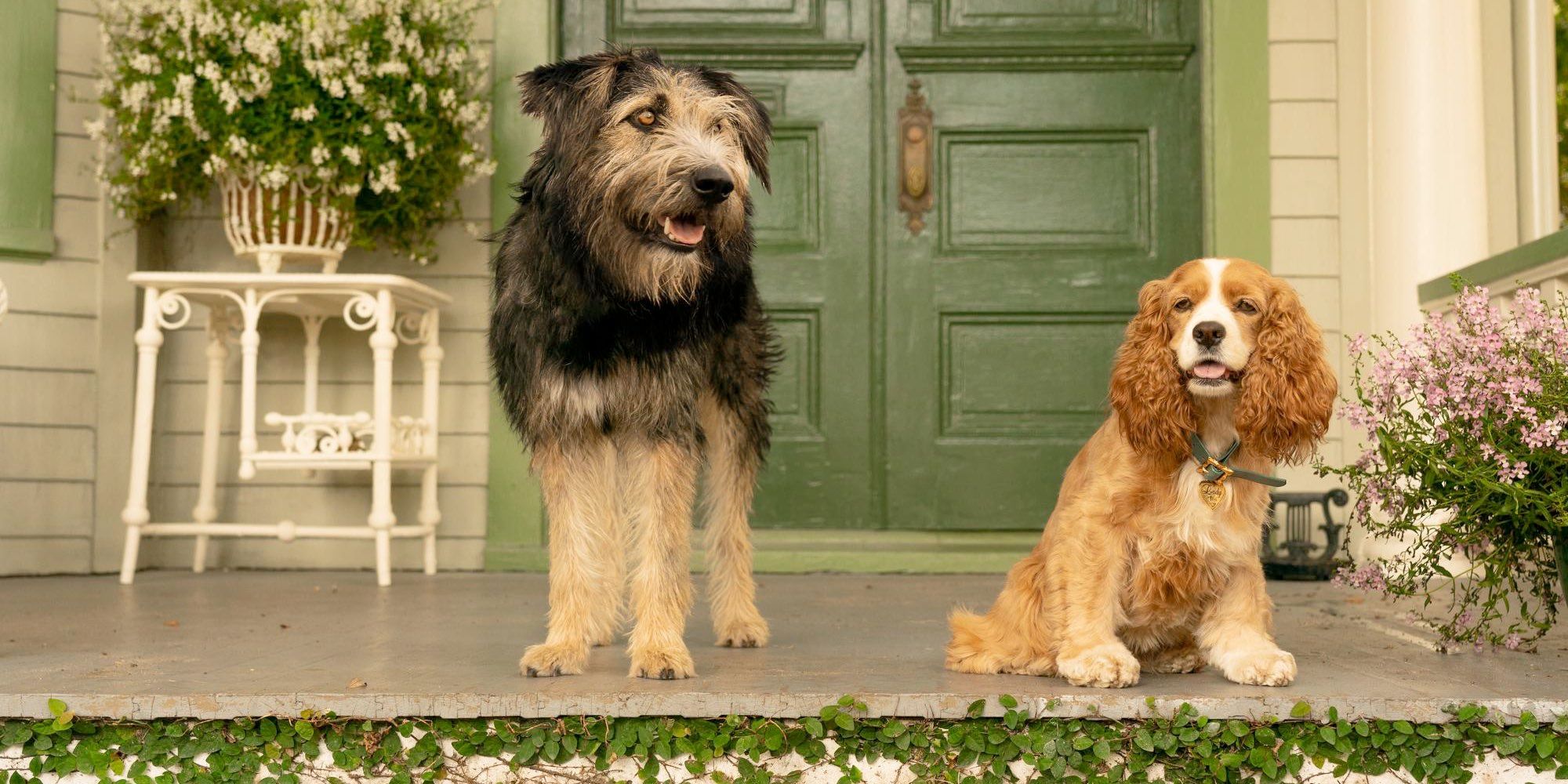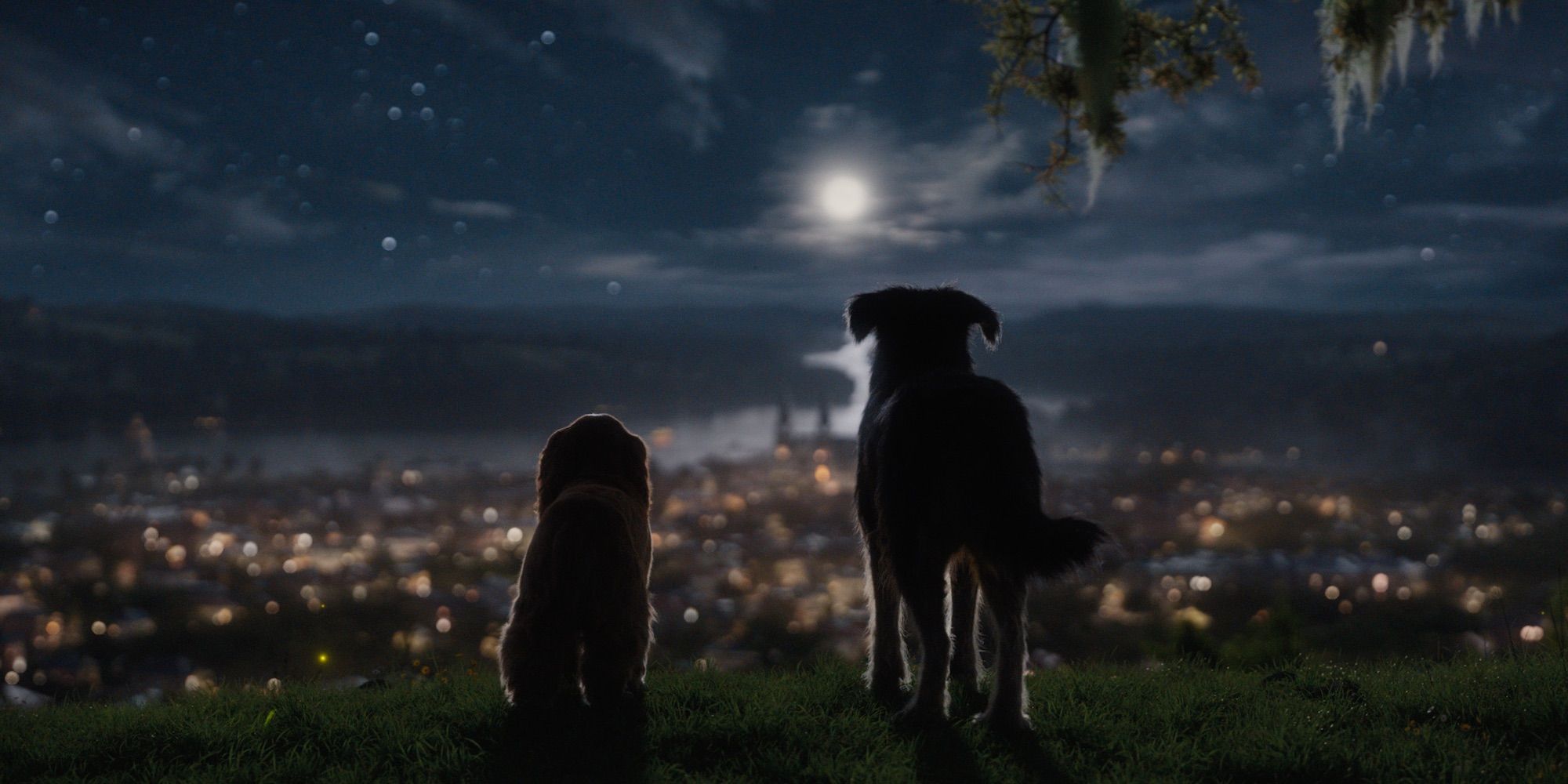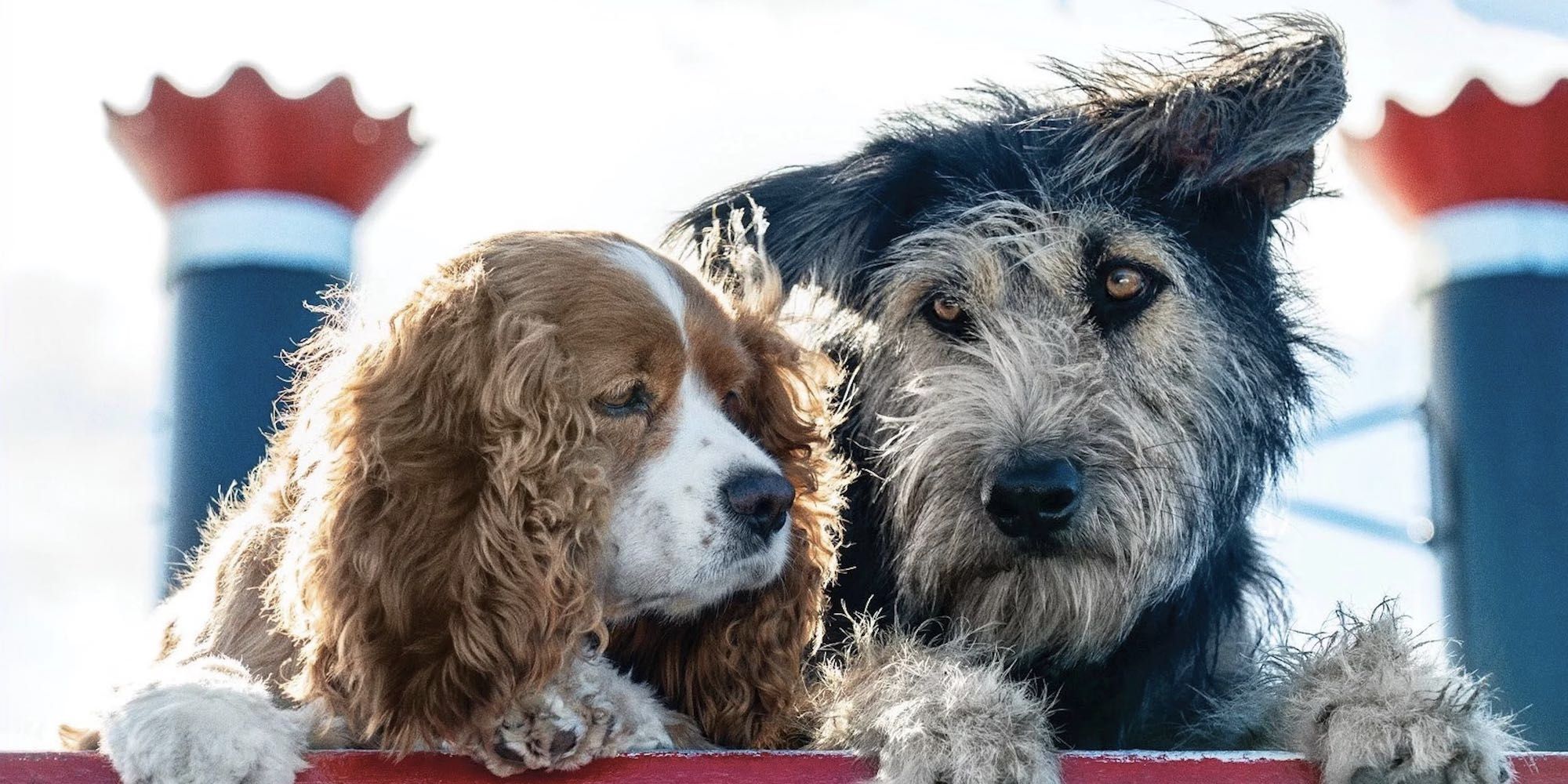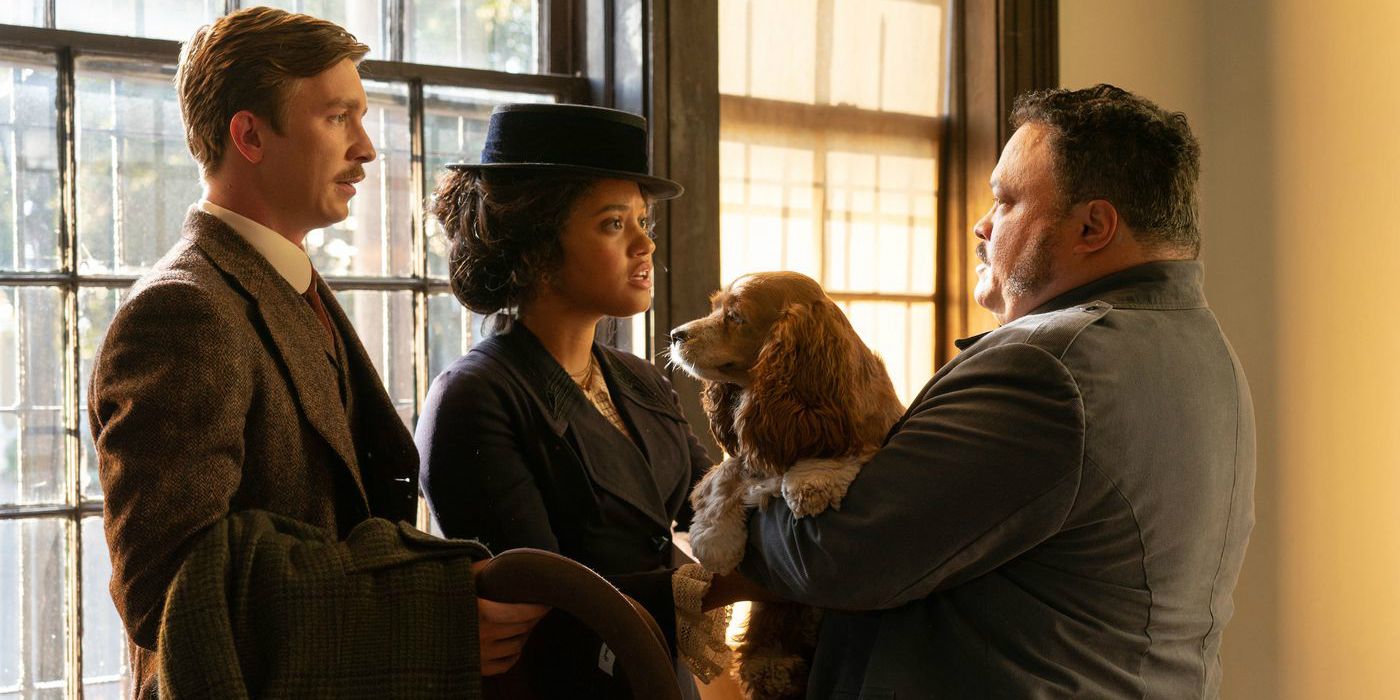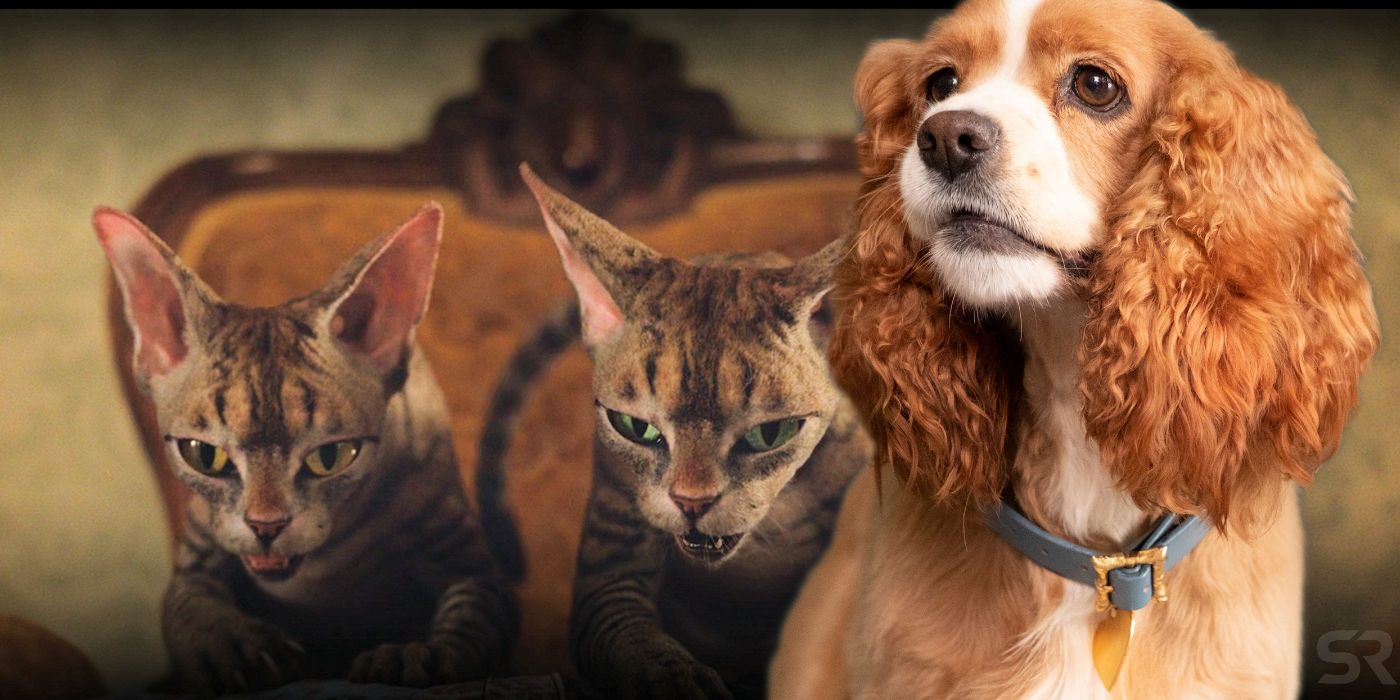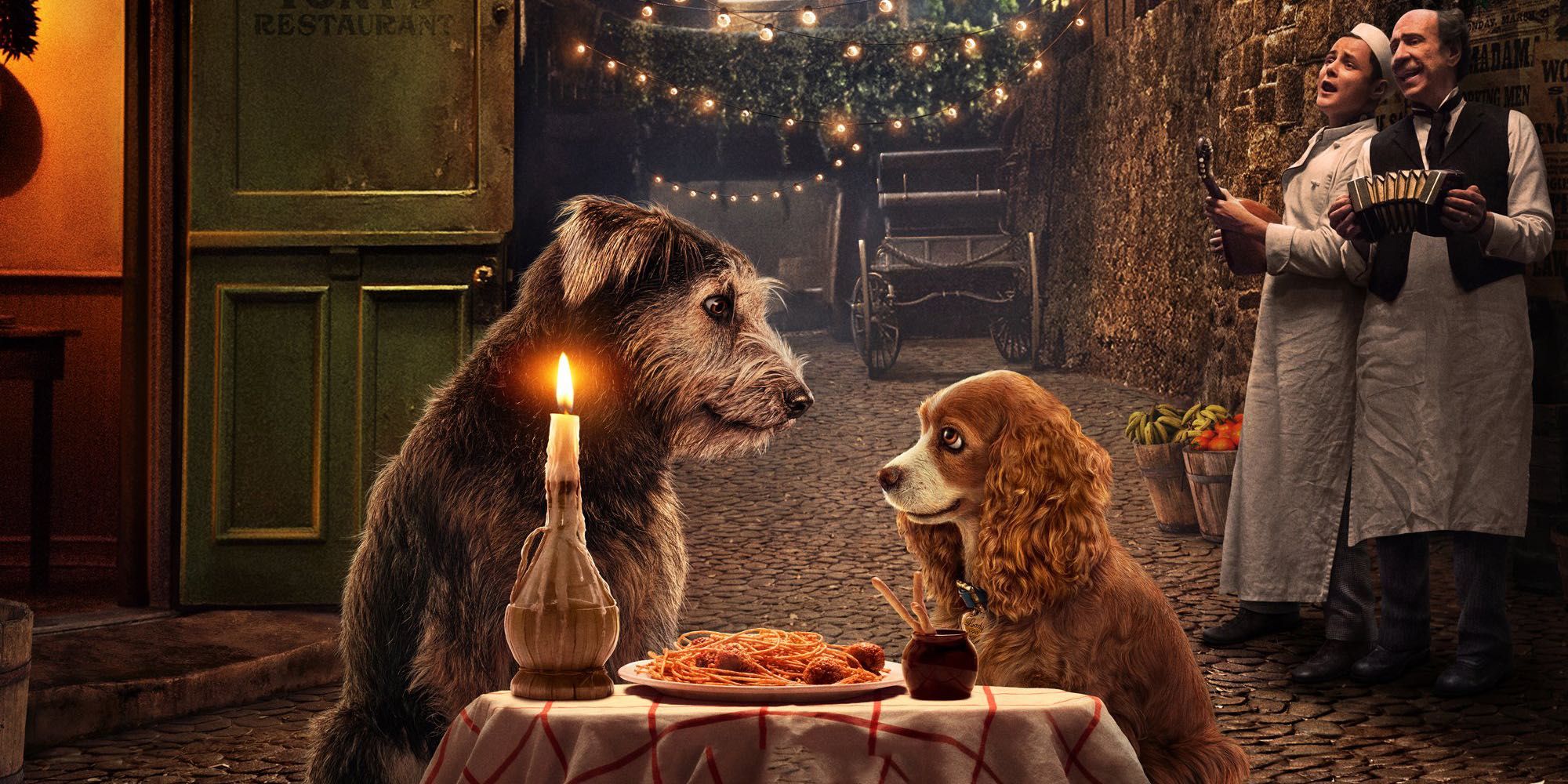Disney+'s live-action Lady and the Tramp is a remake of the studio's 1955 animated classic, but the 2019 version has made some key changes to the story. The original movie not only captured hearts but quickly became recognizable by the iconic scene of the two pups slurping up the same string of spaghetti until they end up meeting in the middle for a romantic kiss. So, it's no surprise that Disney would remake the film, but with a few changes to keep up with the times.
Of course, the two dogs still fall in love. After all, what would this story be without romance? Nonetheless, Disney seems to have acknowledged the shift in culture since the animated classic that was released over 50 years ago. One could simply think of the streaming film as the new and improved, updated version, especially with all the technical story enhancements. Back in 1955, Disney only had a few simple storytelling techniques, and limited technology they could use to really bring the story to life. Fast forward 64 years later, and CGI has really come a long way, which is reflected in the movie.
The 2019 version of Lady and the Tramp that is available to stream now on Disney Plus provides a little more exposition and backstory on the characters, especially Tramp. Having a backstory makes the character more relatable and allows the films to focus on other themes, such as family. From subtle changes that you may not even notice to the extremely obvious removal of certain songs, here are the biggest differences between the 1955 animated film and Disney+'s live-action remake.
Tramp Doesn't Have A Name
One major difference in the 2019 version is that the Tramp claims he doesn't have an official name. While other characters do refer to the dog as Tramp in the remake, he says he gets called Spot and Pooch, too. But he boasts that he's officially nameless. In fact, he even asks Lady, "Who needs a name?” This is likely due to his insecurity about not having a family. Tramp feels that by not having a name or home, he is somehow free. It's just his way optimistically looking at his homelessness situation, which makes the character even more dynamic and arguably even relatable on a variety of levels.
No Nicknames Either
Disney also decided to get rid of the nicknames that were present in the original version. For example, in the live-action Lady and the Tramp, Tramp calls Lady by her name. But in the animated version, he calls Lady “Pigeon.” Perhaps Disney didn’t want anyone getting too analytical and reading into any nicknames, so they just got rid of them altogether. Since every film is subject to interpretation, viewers could draw whatever conclusion they want. In today's world, we can't blame the studio for not taking too many risks.
There Are Flashbacks Of Exposition
2019's Lady and the Tramp provides more exposition on Tramp this time around by giving the pup a backstory, and a sad one at that. The audience is shown in a flashback that Tramp once belonged to a loving family, and was seemingly very content with his living situation. Alas, when the family had their firstborn child, they left Tramp behind to focus on their new bundle of joy. Tramp also warns Lady that the same will happen to her when her family has a child. The audience gets a first-hand look at why Tramp is the way he is. Using the time ellipsis technique was also not something the 1955 version was able to pull off. But it really adds more emotional depth to the character, which improves the narrative overall.
Lady Doesn't Need Tramp To Defend Her
What’s more, some other traditional elements are also left out of the film. Like, Tramp doesn’t almost get into a physical fight with other dogs over Lady like he does in the animated version. In fact, in a serious role reversal, Lady defends herself using wit but never resorts to physical violence. Violence never solved anything, right? It's a great lesson in the film to always use your mind instead of any sort of physical altercation. It could also be that Disney doesn't want to continue traditional gender norms and toxic masculinity.
Lady Isn't Abused In The Remake
Another noticeable update to keep up with the times is that Lady’s owner, Darling, doesn’t strike the little pup as she does in the original. In the remake, Disney chose to have Darling simply scold Lady by saying “bad dog,” instead of laying a single hand on her. After all, animal abuse is absolutely unacceptable, and surely most viewers appreciate Disney for acknowledging that.
Siamese Cat Song Removed
The filmmakers also decided to completely remove “The Siamese Cat Song” for Aunt Sarah’s cats, and replace it with an entirely new song titled, “What a Shame.” It could be that Disney just didn’t think the song was appropriate. Or it could be the fact that the cats in the 2019 version are not even Siamese. Aunt Sarah's cats are grey and have black stripes in the live-action version, so removing the song was likely a good call, as it wouldn't make much sense to sing a song about a Siamese cat when the cats are clearly not.
No Puppies In The 2019 Version
Lastly, unlike in the original Lady and the Tramp, the two dogs don’t have puppies at the end. Back in the 1950s, Disney chose to end the story with the two pups having four puppies. Alas, in the updated, modern-day version, Tramp is simply given a collar, which is symbolic of him becoming family.

